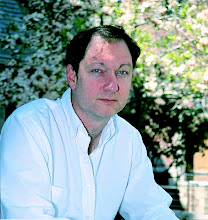Disappointingly, John Donohue has at the last minute withdrawn from our scheduled debate on Thursday (see note for 11/29 below). I will still give a talk, though I will instead discuss the changing judicial confirmation process. Here was the advertising of the debate in the Chicago Daily Law Bulletin:
Chicago Daily Law Bulletin
November 26, 2004, Friday
SECTION: Pg. 3
LENGTH: 921 words
HEADLINE: A Web of plans at Illinois schools
BYLINE: JERRY CRIMMINS
. . .
University of Chicago Law School
- At 12:15 p.m. Thursday, Dec. 2, at the law school, the Federalist Society will present a debate entitled, "Do More Guns Result in Less Crime?" John Lott, resident scholar at the American Enterprise Institute for Public Policy Research and author of " More Guns, Less Crime: Understanding Crime and Gun Control Laws," will debate Yale Law School Professor John Donohue, author of "Shooting Down the ' More Guns, Less Crime' Hypothesis."
UPDATE: When I gave my talk at Chicago, I asked the students if they knew what had happened, but no one apparently understood why Donohue really backed out of the debate just a couple of days before the event. The debate had been set up months in advance. I had received the same emails that Donohue and Bernard Harcourt, the moderator, received confirming the event more than a month in advance. The emails were cc'd to my address, Donohue's, and Harcourt's at the same time. If there had been some misunderstanding, Donohue should have notified everyone much earlier than two days before the event.
UPDATE 2: Here are some of my very early email correspondance with Joe Cascio, with the University of Chicago Federalist Society, from the just the first half of September. The claim has been made that the event wasn't confirmed until November 29th, but I have it first confirmed in September and then several emails after that checking on the event (including just asking if people had any questions, confirming flights, and setting up the ground rules for the debate).
From: jcascio@uchicago.edu
Date: September 13, 2004 9:29:10 PM EDT
To: John Lott
Subject: Re: Speaking to the Federalist Society w/John Donohue
Dear Dr. Lott,
Great. The topic is "Do more guns (i.e. less restrictive gun laws) mean less crime?" As far as format, anything mutually agreeable to you and Professor Donohue would be fine, but we had in mind a debate with fifteen minutes for you to speak, then fifteen minutes for Professor Donohue, then ten minutes for you, then ten minutes for him, followed by ten minutes of student questions. Please let me know if that's acceptable to you. In any case, thank you very much for accepting our invitation and I'm really looking forward to this event. Please let me know if you will need a hotel room the night of the first.
Joe
Quoting John Lott :
That should be fine. What exactly is the topic? What are the ground
rules?
On Sep 9, 2004, at 6:40 PM, jcascio@uchicago.edu wrote:
Dear Dr. Lott,
I'm sorry I didn't respond sooner to your message. I was out of town for a bit, then I checked with Donohue and Harcourt to see what day that you had said you would be available would work for them. How about December 2? We could have the debate at lunch and if you need to stay the night before we could put you up at the Omni downtown. In any case, please let me know if this can work out and thanks for your patience.
Sincerely,
Joe Cascio
Debate with John Donohue is again canceled, this time with only six days to go.
Further discussion of Ian Ayres & John DonohueLabels: Crime, JohnDonohue






